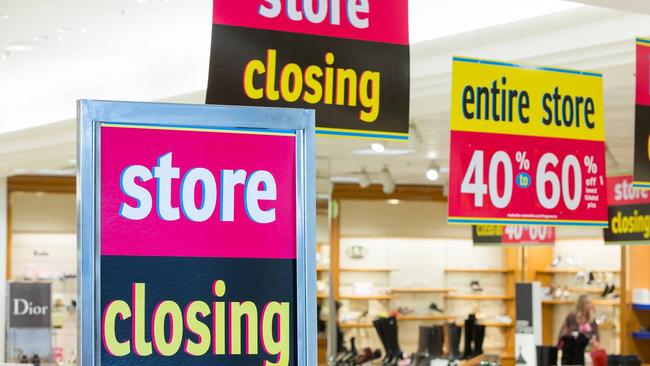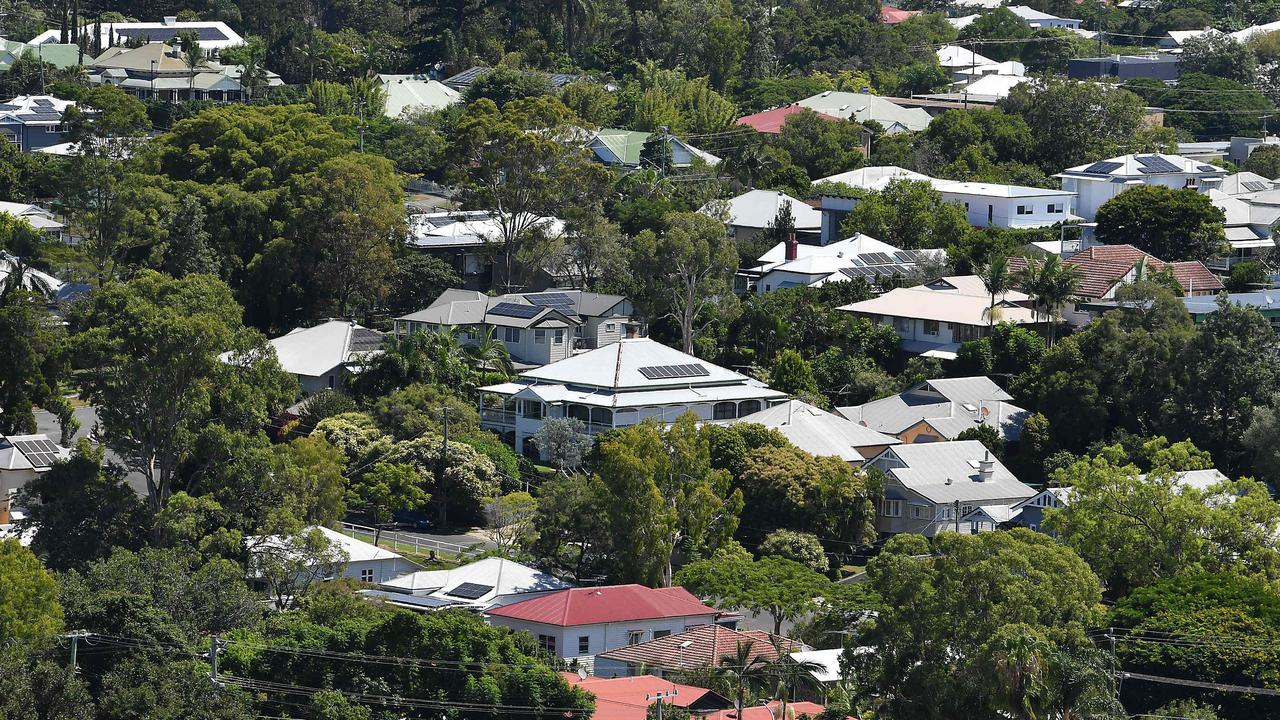Government urged to scrap online GST changes
THE Government wants to “hoodwink” shoppers with a Great Big New Tax on online shopping that will do nothing to address high retail prices in Australia.

THE Turnbull Government is attempting to “hoodwink” the Australian public with a great big new tax on online shopping that will do nothing to address high retail prices in Australia, economists have argued.
Under new laws slated to come into effect from July 1, overseas businesses with an annual turnover of $75,000 or more will be required to register with the ATO to collect GST on all goods sold, including purchases under the current low-value threshold of $1000.
Major retailers including Harvey Norman and Premier Investments have long lobbied for the change, saying it will level the playing field against the likes of Amazon, Asos and eBay.
In his speech to Parliament, Treasurer Scott Morrison said the changes “are about ensuring that Australian businesses, particularly small retailers, do not continue to be unfairly disadvantaged by the current GST exemption that applies to imports of low-value goods”.
But in a submission to a Senate inquiry into the changes, RMIT economists Sinclair Davidson and Chris Berg have highlighted the “absurdity” of the move, saying it will “raise very little revenue and will be expensive and complex to administer”.
“The elimination of the low-value threshold for the GST constitutes a new tax on inbound internet trade — that is, it will function as a tariff imposed on Australian consumers,” they write. “While masqueraded as a tax integrity measure, this tax is clearly intended to operate as a form of protectionism.”
Two reviews examining the feasibility of lowering the threshold — one by the Productivity Commission in 2011 and one by the Low Value Parcel Processing Taskforce in 2012 — found the cost of collecting the taxes would outweigh the revenue generated.
According to a 2015 study, price comparisons between identical goods sourced from local retailers ranged from 14 per cent to as high as 70 per cent. A survey by consumer group Choice in the same year found only 12 per cent of people said they shop online to avoid GST or customs.
“[Rather] than taxing foreign goods the government should focus its attention on why Australian prices are so high,” Davidson and Berg write. “Of course, the Government earns higher GST tax revenue from higher prices and has no incentive to lower consumer prices for Australians.
“The tax will reduce competitive pressure within the domestic Australian economy, and (as a consequence) expose Australian consumers to government-sanctioned higher retail prices.”
They add that the Australian Government has no legal jurisdiction over foreign retailers to ensure compliance, which “appears to be somewhat voluntary and arbitrary”.
“The tax will lead to Australian consumers substituting away from large reputable electronic distribution platforms to more disreputable platforms leading to higher rates of internet fraud and possibility criminality,” they warn. “Product safety and consumer protection rights are likely to be compromised.”
More technically, they point out that the design of the tax itself “deviates substantially from the existing GST design”, arguing it reflects a “conceptual confusion about the nature of Australia’s Goods and Services Tax”.
To explain, they quote the following section of the bill’s explanatory memorandum: “Broadly, the electronic distribution platform rules apply to shift GST liability for supplies made through electronic distributions platforms from individual suppliers to the operators of the platform.
“The reforms ... treat the operator of an electronic distribution platform as the supplier of low-value goods if the goods are purchased through the platform by consumers and brought to the [Australia] with the assistance of either the supplier or the operator.”
Davidson and Berg argue that this is a “stark divergence from how value-added taxes are usually constructed”. “Normally a VAT is a tax on net sales with the assumption that tax has been passed forward,” they write.
“This new tax is a tax on a business that facilitates trade between two separate parties. Imagine if instead of a buyer and seller trading on an electronic distribution platform they conducted their business over the telephone. If this bill were to operate in a consistent manner it would then be imposing the tax liability on the telephone company.
“[It] exposes electronic distribution platforms to arbitrary and uncertain Australian taxation. Very likely some of these platforms will exit the Australian market or refuse to deal with Australian consumers and retailers. This is very likely to isolate Australian internet start-ups and undermine the Government’s own innovation agenda.”
It comes as a petition “representing millions of taxpayers across the world”, organised by the Australian Taxpayers’ Alliance, urges the Government to reject lowering the threshold.
“Instead of looking for new ways to tax businesses and consumers, the Australian parliament should look for ways to reduce chronic overspending instead of looking for new taxing levers,” the petition says.
“In addition to being fiscally irresponsible, the proposed changes go against long-term trends in international trade. In stark contrast to Australia, other countries are trending towards fewer trade barriers. In 2016, the United States increased the ‘de minimis’ value for duties on imported goods from USD$200 to USD$800.
“This legislation will also make more dangerous, unreliable sites enticing to sellers and consumers as an alternative. There won’t be any meaningful way to enforce compliance against these types of black-market sites.
“These sites are likely to lack many of the consumer protections that are found in the main online marketplaces. For example, there will be no payment protections, no ability to ensure enforcement of local consumer laws, and more chances of consumers being scammed.”
The Treasury Laws Amendment (GST Low Value Goods) Bill 2017 was referred to the Senate Economics Legislation Committee last month, with a report due to be handed down on May 9.




